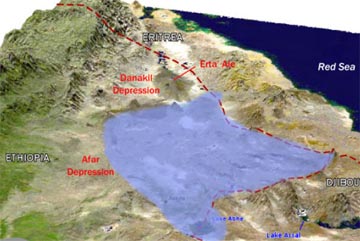pop up description layer
HOME
Cryptozoology UFO Mysteries Aviation Space & Time Dinosaurs Geology Archaeology Exploration 7 Wonders Surprising Science Troubled History Library Laboratory Attic Theater Store Index/Site Map Cyclorama
Search the Site: |
|
x
The Controversial Aquatic Ape Hypothesis
A Zoology Professor's controversial theory about how dwelling in water may have affected the evolution of man may explain issues from our lack of body hair to our affinity for expensive beach-front property. In 1960 zoologist Sir Alister Hardy, the Linacre Professor of Zoology in Oxford, made the decision to speak about a theory he'd been ruminating over in the back of his mind for almost 30 years. The theory was so unconventional that Hardy had qualms about publishing it, but on March 5th he decided to present his idea in a speech to the British Sub-Aqua Club in Brighton. Shortly afterwards he also wrote two articles for the Journal New Scientist about his theory and the Aquatic Ape Hypothesis (though Hardy didn't call it that at the time) was born. Hardy's theory was simply this: That during prehistory man's hominid ancestors had spent considerably more time in shallow, coastal or lake water than most scientists had previously thought. This, in turn, changed the way humans had evolved. His thinking came from a book by Wood Jones called Man's Place among the Mammals. In this book Jones stated that man, unlike all other land mammals, has his fat attached to his skin. Hardy, who was an expert in animals such as whales, thought that this sounded like the trait of marine mammal. This suggested to him that mankind had spent enough time in the water to cause him to adapt to that environment. Hardy wasn't the first one to ponder this possibility. As far back as the Greeks, the philosopher Anaximander proposed that mankind had come from an aquatic species of animal. The German scientist Max Westenhöfer also speculated about this in 1942. It was Hardy's speech and writings; however, that really brought the theory to the attention of the world Though no evolutionary scientists took to Hardy's hypothesis, other people liked it. The zoologist Desmond John Morris talked about it favorably in his 1967, best-selling, popular book The Naked Ape. Writer Elaine Morgan read about the idea in Morris' work and liked it so much she promoted it in six different books. Morgan, a feminist, found the theory appealing in part because the accepted theory that man evolved on the savannah as a hunter seemed too male centered to her. The Naked, Breath-Controlled, Bi-pedal Ape Over the years supporters of the Aquatic Ape Hypothesis have compiled a long list of characteristics they observed that man has in common with aquatic animals, but not apes. Probably the most obvious of these is the lack of body hair. With the exception of the head, most humans have very little body hair as do whales, dolphins, walruses and manatees. The thinking is that if these animals found it advantageous to shed their body hair as they spent more and more time in the water, it might be the same for mankind. Another characteristic is breath control. While people can take conscious control over their breathing, apes cannot. Of course without this capability swimming underwater is nearly impossible. Proponents of the Aquatic Ape Hypothesis argue that humans developed this ability to take over the control of their breathing because of their extended time in the water. They also note that the human ability to control breathing, which would have evolved from a diving skill, may have been pivotal in his later developing the ability to speak. Supporters of the theory also think that bi-pedalism, the ability to walk on two legs, might have evolved because our ancestors were forced to deal with lands that were continually flooded. A tall, upright gait would have assisted them with keeping their heads out of water. The buoyancy of the hominid's body in liquid would also have helped to support the animal in this unnatural position until evolution made the necessary adaptations.
Proponents of the Aquatic Ape Hypothesis think they can even pinpoint a possible location where this all occurred. The Afar Triangle, a low-lying area near the Red Sea, contains some of the oldest human fossils ever found on the planet. This area was flooded 7 million years ago and became the Sea of Afar. Theory supporters envision some of our ancestors trapped on offshore islands during this time while others lived in forests that became swamps, salt marshes or lagoons. The primitive hominids there would have to have adapted to the changes, moved or died out. Finally, believers argue that our ancestors would have found the open grasslands of the savannah, where competing theories say man evolved, too exposed to predators such as leopards or other large cats. By retreating into the sea, they could avoid this danger. Science vs. Aquatic Ape Believers in the Aquatic Ape Hypothesis claim that the scientific establishment has unfairly ignored their theory because one of its main champions, Morgan, was an outsider. Opponents of the theory, however, argue that the problem with the hypothesis is that it sorely lacks the real evidence needed to support it. They claim that many of the characteristics listed as connecting man with aquatic creatures are misinterpretations or simply based on incorrect information. Opponents of the theory admit that both man and some aquatic mammals are hairless, but point out that so are some land mammals like the elephant, some rhinos and hippos. While hippos do spend a lot of time in the water, elephants and rhinos don't, except for the occasional wallow. (Their hairlessness seems more related to their need because of their large size to shed excess heat). What's more, opponents point out, semi-aquatic mammals - the category the theory places man in - includes otters, sea lions and beavers, who retain their hair. The only aquatic mammals that have lost their hair are those who have spent large amounts of time in the sea for millions of years such as whales and dolphins. However, these animals (which are some of the fastest in the ocean) have lost their hair in order to reduce drag and give them a higher top speed. Man, however, would get no appreciable gain in speed from this change as he is simply too slow a swimmer in the first place. It would be as effective as streamlining a riding mower. The top speed of the mower is simply not fast enough for the aerodynamic shape to help. Skeptics also point out that while man has perhaps the best breath control of all land creatures, other animals, like dogs and even some apes, can control breathing in a limited way. The standard theory that man's control over his breathing is the result of developing a very advanced vocal language explains why he is so good at it without needing to speculate about man's ancestors being aquatic. According to Aquatic Ape Hypothesis supporters, man is the only land mammal that is bi-pedal. However, opponents to the theory point out that there are also no aquatic mammals that walk on two legs either. In addition birds (like storks) that use their long legs to wade through deep water have lower legs substantially longer than upper legs, something that people don't.
Finally, opponents to the theory point out that using the sea, or even a lake, as a haven from predators is problematic. Modern chimps living near the savannah have little problem with big cats, like leopards, as long as the chimps stick together and use group tactics. However, even modern man with all his weapons fears crocodiles which can inhabit fresh water lakes and rivers or saltwater seas. Spending substantial time in the waters of the ancient Sea of Afar would have been much more dangerous than living on the savannah. Not only would man have been in danger of crocodiles in the shallows, but as the water grew deeper it would also carry the threat of sharks. Beach Front Property vs. Parks The argument over the possibility of man having an aquatic past is far from over. Proponents of the Aquatic Ape Hypothesis continue to find reasons to argue that man is more like an aquatic creature than other great apes, while opponents from the scientific establishment point out problems with these ideas. A sample of these items include the amount and arrangement of fat on our bodies, the need for fatty acids to develop brain size, the existence of large sweat glands on our body and the ability to cry salty tears. Each of these characteristics leads to interesting discussion on human development, but none prove the theory. Interest in the theory was probably at its zenith in 1987 when a conference, organized by the European Sociobiological Society and the Dutch Association of Physical Anthropology, was held in Valkenburg, Netherlands on the subject. Twenty-two papers were presented. Twelve for the idea, ten against and two neutral. The discussion as the meeting was animated, but in the end no consensus on the topic was reached. However, it was discovered recently that elephants have an aquatic ancestor from 37 million years ago, the Moeritherium. The existence of this tapir-like animal that probably had a lifestyle not unlike modern hippos seems to have added some credence to the Aquatic Ape Hypothesis as far as its supporters are concerned. 'If the elephants did it, why not humans?' is their thinking. Even the most hard-line unbelievers in the theory have to admit that of the great apes man seems by far the most comfortable submerging himself in the water. The question is whether our capability to do this, which depends on breath control, is the result of evolving to be able to dive under water or a side benefit from learning to talk. Beach front property is some of the most expensive and sought after real estate one can buy. Proponents suggest this is because we have an affinity for it based on our ancestors' aquatic habits. However an affinity for something does not prove that it affected our evolution. One can even argue we also like the savannah - an open grasslands punctuated with trees - just as much. In fact, we build replicas of it wherever we go. We call them parks. Copyright Lee Krystek 2008. All Rights Reserved. |
|
Related Links |
|
|






